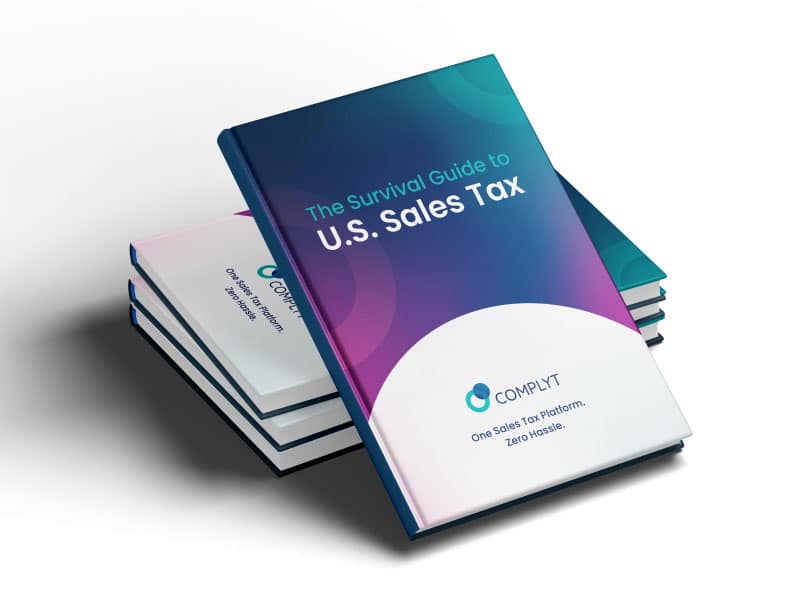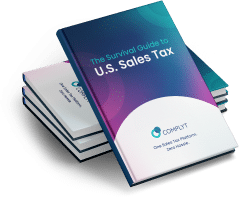What is the sales tax rate in Illinois?
State sales tax rate in Illinois is 6.25%. However, local jurisdictions can impose additional sales taxes, which means the total sales tax rate varies across different parts of the state. The combined rate can reach as high as 11% in certain municipalities.
Sales Tax Illinois: When should your business start remitting sales tax to the state of Illinois?
A business should collect sales tax in Illinois if it has established a sales tax nexus in the state. The nexus is defined by a business’s physical presence or a certain level of economic activity.
Illinois Physical Sales Tax Nexus
In Illinois, a physical sales tax nexus can be created through several different business activities. Here are a few questions to help determine if you have a physical nexus in Illinois:
- Do you have a business location in Illinois, such as a storefront, office, or warehouse?
- Do you have employees working in the state?
- Do you store goods in a warehouse within Illinois?
- Do you offer affiliate support to a third party business in Illinois?
Answering ‘yes’ to any of these questions may mean your business has a physical nexus in Illinois. And this is not by far an exhaustive list of the aspects that could trigger a physical nexus.
Illinois Economic Nexus: Revenue, Thresholds, and Transactions
The economic nexus threshold is $100,000 in sales or 200 separate transactions in Illinois during a preceding twelve-month period. Out-of-state sellers who exceed these thresholds are required to register for a sales tax permit and collect sales tax from Illinois customers.
Which services are taxable in Illinois?
In Illinois, certain services are subject to sales tax. Primarily, these are services that involve the creation, repair, cleaning, alteration, or improvement of tangible personal property.
Here are some services that are taxable:
- Repair and maintenance of tangible personal property
- Printing or imprinting of tangible personal property
- Photofinishing
- Laundry and dry cleaning
- Certain telecommunications services
Illinois Sales Tax on Products: How to Calculate What Your Business Should be Charging
In Illinois, you would calculate the sales tax on a product by applying the combined state and local sales tax rate to the sale price of the item. For instance, if you are selling a product for $100 in a location where the combined sales tax rate is 8%, you would charge your customer $108. That extra $8 is the sales tax that you would need to collect and remit to the state.
How much is the Illinois clothing tax?
Clothing is generally subject to sales tax at a rate of 6.25%, plus additional local taxes of up to 4.75%.
Illinois had previously hosted sales tax holidays that lowered clothing tax to 1.25% on products that cost less than $100. But as of 2023 the state no longer hosts a sales tax holiday, which means sales tax on clothing remains at 6.25% plus local taxes.
Illinois Online Sales Tax: Are SaaS and Digital Services Taxable?
In Illinois, certain digital products and Software as a Service (SaaS) are considered taxable. This includes the sale of “canned” computer software, which is prewritten software that is not designed and developed to the specifications of a particular purchaser.
SaaS Sales Tax Illinois: Does my Business Need to Charge Sales Tax for SaaS in Illinois?
It depends. Statewide Illinois SaaS sales tax isn’t a thing yet, so if your business sells SaaS to customers located in Illinois, you generally do not have to collect sales tax. But different local jurisdictions have different views on the definition of SaaS and under which tax laws it falls.
While most Illinois jurisdictions view SaaS as a service, and thus not taxable, Chicago, on the other hand, sees SaaS as the leasing of personal property. This means it falls under the Chicago Personal Property Lease Transaction Tax, which makes SaaS taxable in Chicago.
Note that custom software and certain digital products are exempt from this taxation.
How can a business get a sales tax permit in Illinois?
Businesses can apply for an Illinois sales tax permit through the MyTax Illinois website. You will need to provide your federal Employer Identification Number (EIN), legal business name, and the physical address of your business.
Collecting Sales Tax in Illinois as a Business
Businesses in Illinois must file regular sales tax returns with the Illinois Department of Revenue. The frequency of these filings depends on the volume of sales tax you collect.
Illinois Tax Return Due Dates Explained
Illinois sales tax returns are typically due on the 20th of the month following the reporting period. If the 20th falls on a weekend or holiday, the due date is moved to the next business day. Please keep in mind that the date provided here is a general guideline, and it is always recommended to consult with the Illinois Department of Revenue or a tax professional for specific and up-to-date information regarding sales tax return due dates in Illinois.
What is the required frequency for sales tax returns in Illinois?
In Illinois, the frequency of sales tax returns depends on your sales volume. Generally, if the business collects less than $1,000 in sales tax per year, it is required to file an annual return. If the business collects between $1,000 and $10,000 in sales tax per year, it is required to file a quarterly return. If the business collects more than $10,000 in sales tax per year, it is required to file a monthly return. But that being said, sales tax is continuously being updated to new numbers. Please consult your tax advisor to determine if the numbers have changed.

